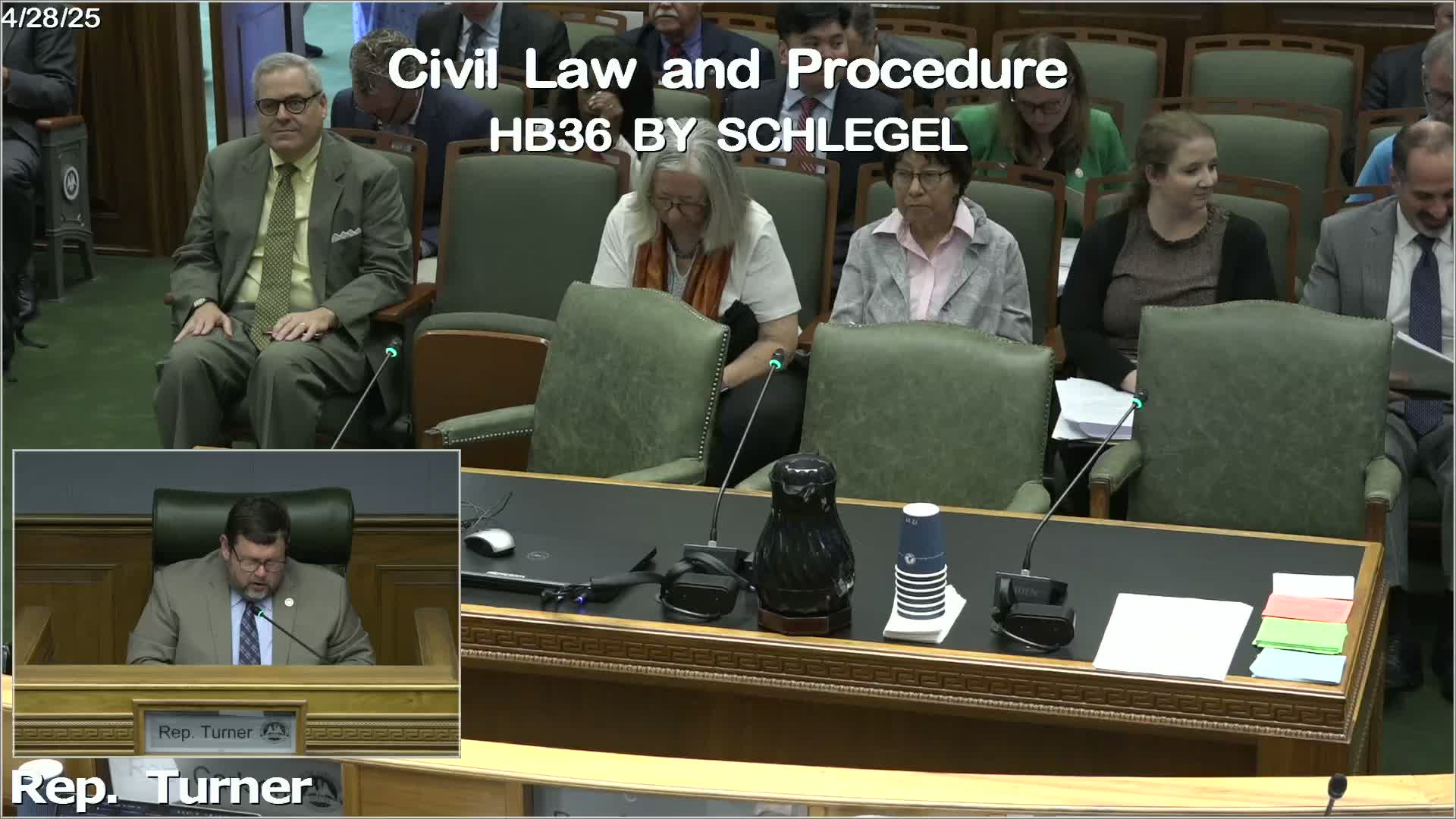Asbestos trust transparency bill draws heated debate; author volunteers to defer for amendments
Get AI-powered insights, summaries, and transcripts
Subscribe
Summary
Representative Wright’s HB 302, which would require plaintiffs to disclose asbestos-trust claims and factual bases for naming each defendant, drew extensive testimony from veterans, plaintiffs’ attorneys and industry representatives; the author voluntarily deferred the bill for further work after extended debate.
Representative Michael Wright told the Civil Law and Procedure Committee HB 302 would accelerate disclosure so juries and defendants see all trust claims submitted by plaintiffs and would require plaintiffs to state the factual basis for each claim against each named defendant in asbestos litigation.
"The bill basically requires that within 30 days of filing an asbestos claim in court, the plaintiff must provide the court and parties with a sworn statement indicating that all trust claims that can be made by the plaintiff have been filed," Wright said, describing the bill’s trust-transparency component. He said the measure also targets "overnaming"—complaints that list many defendants without factual allegations explaining why each defendant was sued.
Opponents argued the bill would disadvantage critically ill plaintiffs and veterans by imposing new procedural hurdles and delaying trials for people with short prognoses. Don Reber, past state commander of the Veterans of Foreign Wars Department of Louisiana, said the measure would "harm Louisiana veterans and their families suffering from asbestos related diseases," adding that many veterans die within two years of diagnosis.
Plaintiffs’ counsel said current practice includes routine discovery mechanisms and contribution remedies, and warned the legislation would be used to delay trials; one lawyer said opponents in other states have used the same rhetoric and that existing law already provides remedies such as contribution. Counsel for business groups and the U.S. Chamber of Commerce argued existing trust processes can permit double recovery and obscure exposure information from juries.
Multiple committee members and proponents acknowledged the issue’s sensitivity and the limited number of new asbestos cases nationally but said transparency is needed so juries can allocate fault accurately and defendants who do not belong in a suit can be dismissed earlier. Several legislators urged amendments to address timeframes and veterans’ concerns.
After extended debate and numerous public and organizational statements, Representative Wright asked to voluntarily defer HB 302 to allow more work with stakeholders; the committee agreed and the bill was voluntarily deferred.
Votes at a glance: HB 302 was voluntarily deferred by the author for further negotiation. No final committee vote on the bill text was taken.
